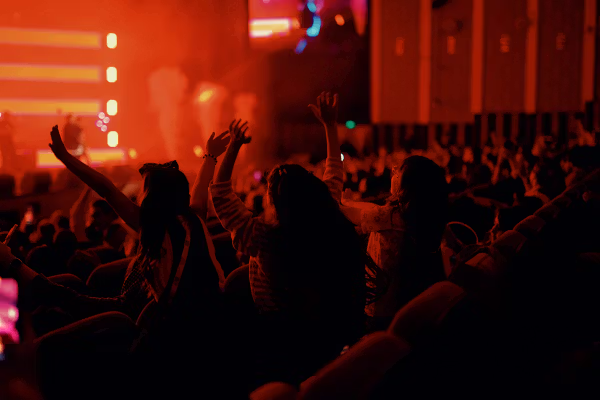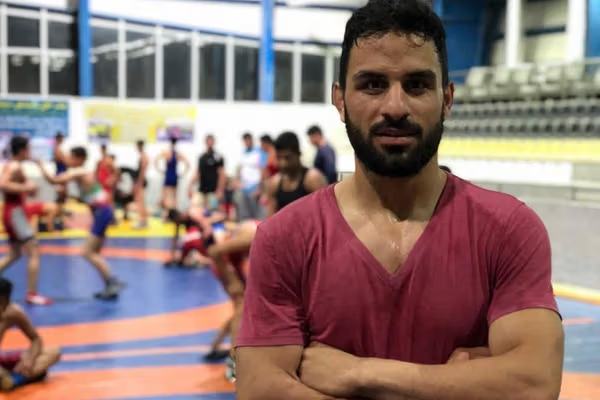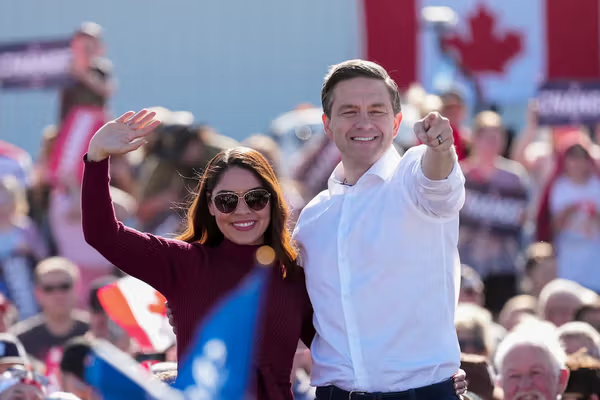
Iran’s rulers don’t mind the ship sinking, their brood jumped long ago
The privileged children of Iran’s ruling elite are building futures overseas that their parents have withheld from millions of Iranians for almost half a century.

The privileged children of Iran’s ruling elite are building futures overseas that their parents have withheld from millions of Iranians for almost half a century.

Six years after Iran’s blackout and mass killings, two women keep alive the month the Islamic Republic tried to bury.
It begins with a sound. A hiss, then silence. A man in Tehran holds his phone to a dry faucet at midnight; you can hear the air whistling through the pipes. “It’s 11:40 p.m. and there’s a smell of fire,” he says.
While relations between Moscow and Tehran have generally been good, ties between former Iranian Foreign Minister Mohammad Javad Zarif and the seemingly perpetual Russian Foreign Minister Sergei Lavrov are decidedly not.

Authorities in Iran are increasingly targeting businesses rather than individuals who refuse to observe the theocracy’s strict social laws around veiling and gender mixing, several café owners and citizens told Iran International.

Iran today stands at a crossroads between decay and renewal: the old order has not yet collapsed, and any new society has yet to fully emerge.

An Iranian remake of Love Island has exploded online, sparking fierce debate about taboos, personal freedom and the responsibilities of new media.

Viral videos of women dancing unveiled in Iranian concerts have reignited debate over whether the apparent social opening is genuine or contrived by a ruling system facing external military pressure and domestic discontent.

Five years after Iran executed champion wrestler Navid Afkari, the Islamic Republic continues to silence athletes and protesters alike—making action against its repressive sports authorities imperative.

We Iranians need a national conversation — an ongoing, daily dialogue to see the dark and bright sides of the challenges our country faces and, hopefully, find practical solutions.

A resilient anti-sanctions consensus dominated major Western policy circles and media narratives for a decade, but this stance risks undermining international law by normalizing Iran’s sustained nuclear defiance.

Watching Iran burn from afar creates a unique kind of anguish—a sense of guilt that you’re free and safe while your homeland is in pain.

So much has happened since Israel began striking Iran that the killing of IRGC aerospace chief Amir Ali Hajizadeh already feels half-buried—but not to those who lost loved ones on Flight PS752, shot down by the forces under his command.

After five rounds of talks, Tehran and Washington project cautious optimism while persisting on their shared red line: Uranium enrichment inside Iran. But is the program worth the price it has exacted from ordinary Iranians?

Pierre Poilievre, a contender to become Canada’s next prime minister, has vowed to purge the country of “IRGC thugs” who, he says, feast on “stolen money from the Iranian people.” If elected on Monday, will he—or can he—deliver?

The campaigns against advocates of Tehran interests outside Iran is not about stifling debate but ensuring a balanced one, with dissenting voices challenging those more aligned with the Islamic Republic.

Iran's Supreme Leader on Sunday openly opposed Syria's new government, spoke of the need to overthrow it, and announced plans to form a group to combat the Damascus administration.

Recent explosions of Hezbollah communication devices in Lebanon and Syria have triggered a complex web of reactions among Iranians, whose government is the primary backer of the armed group.

As we mark the 36th anniversary of the 1988 mass execution of political prisoners in Iran, we are confronted with a stark reminder of the ongoing repression that persists in silencing the voices of those who demand justice.

Iranian rights activists see Javaid Rehman's 2024 report on the human rights situation in Iran as a monumental victory for justice and a beacon of hope for the Iranian people and advocates worldwide.

A former Donald Trump top advisor revealed to Iran International that a second Trump presidency may have a 'zeal for a deal,' leading to negotiations with the Iranian government and a lessening of confrontations.

In the midst of the second round of presidential elections in Iran, which saw a historic low turnout by the majority of voters, the issue of ballot boxes in Western countries sparked widespread protests among the Iranian diaspora.